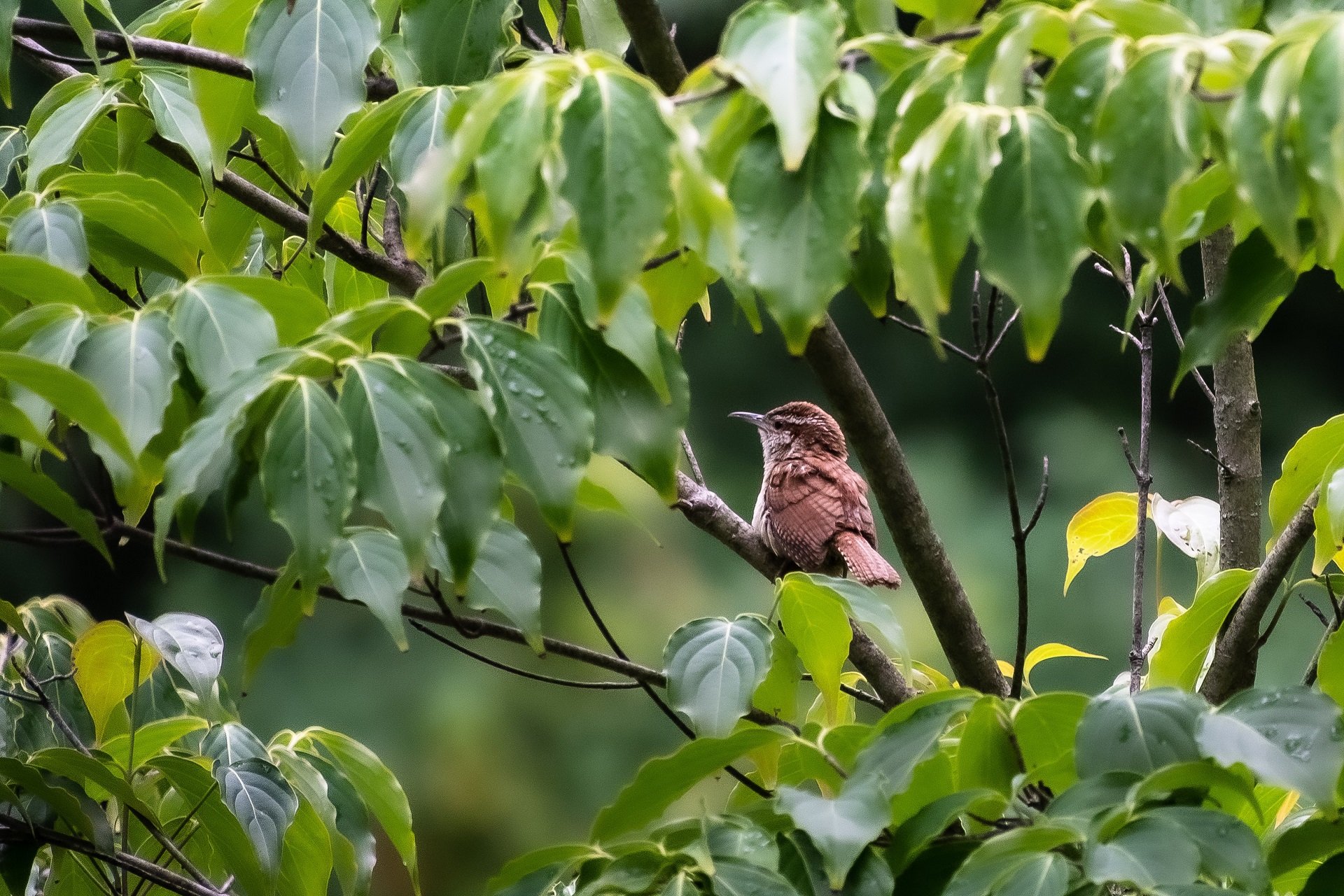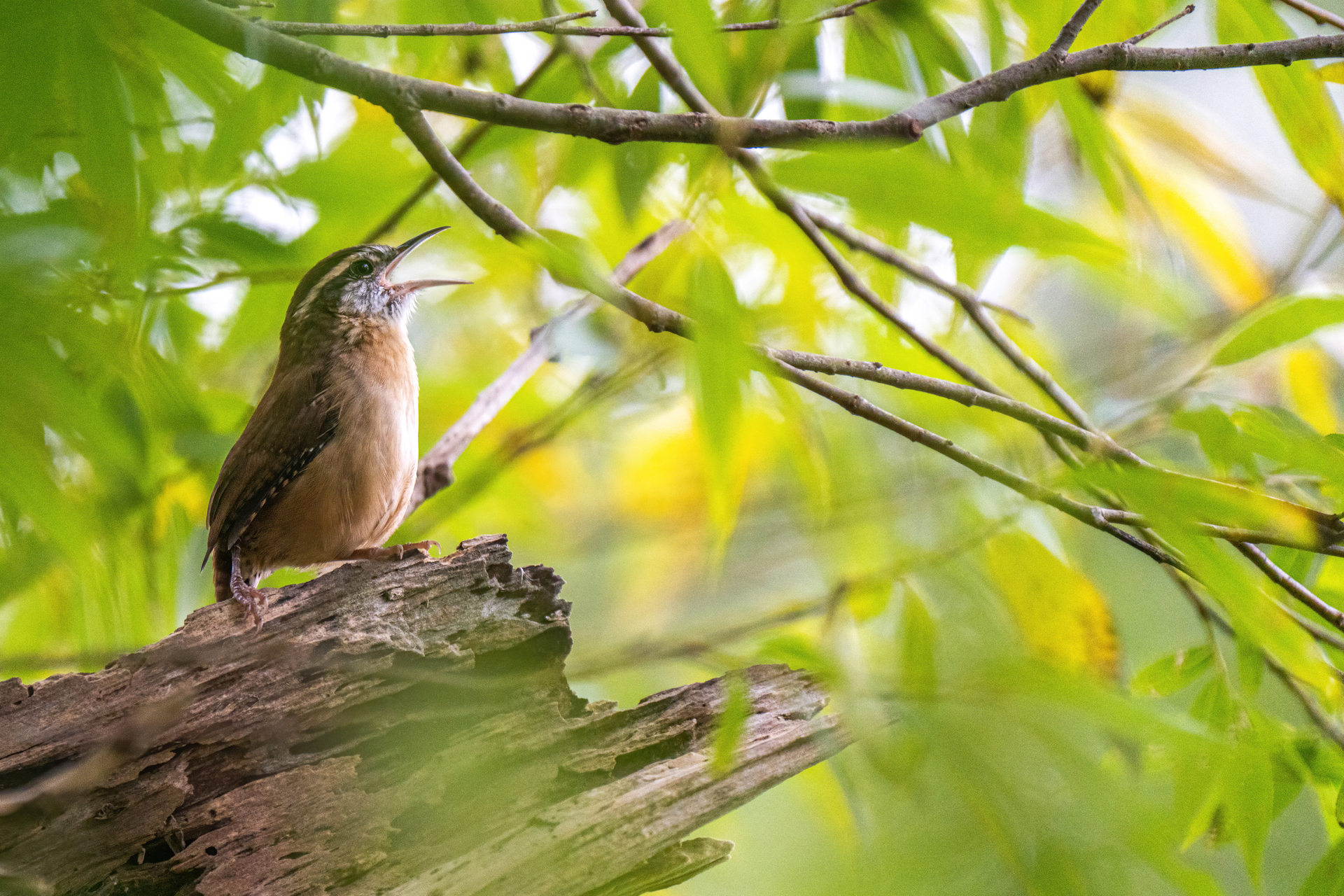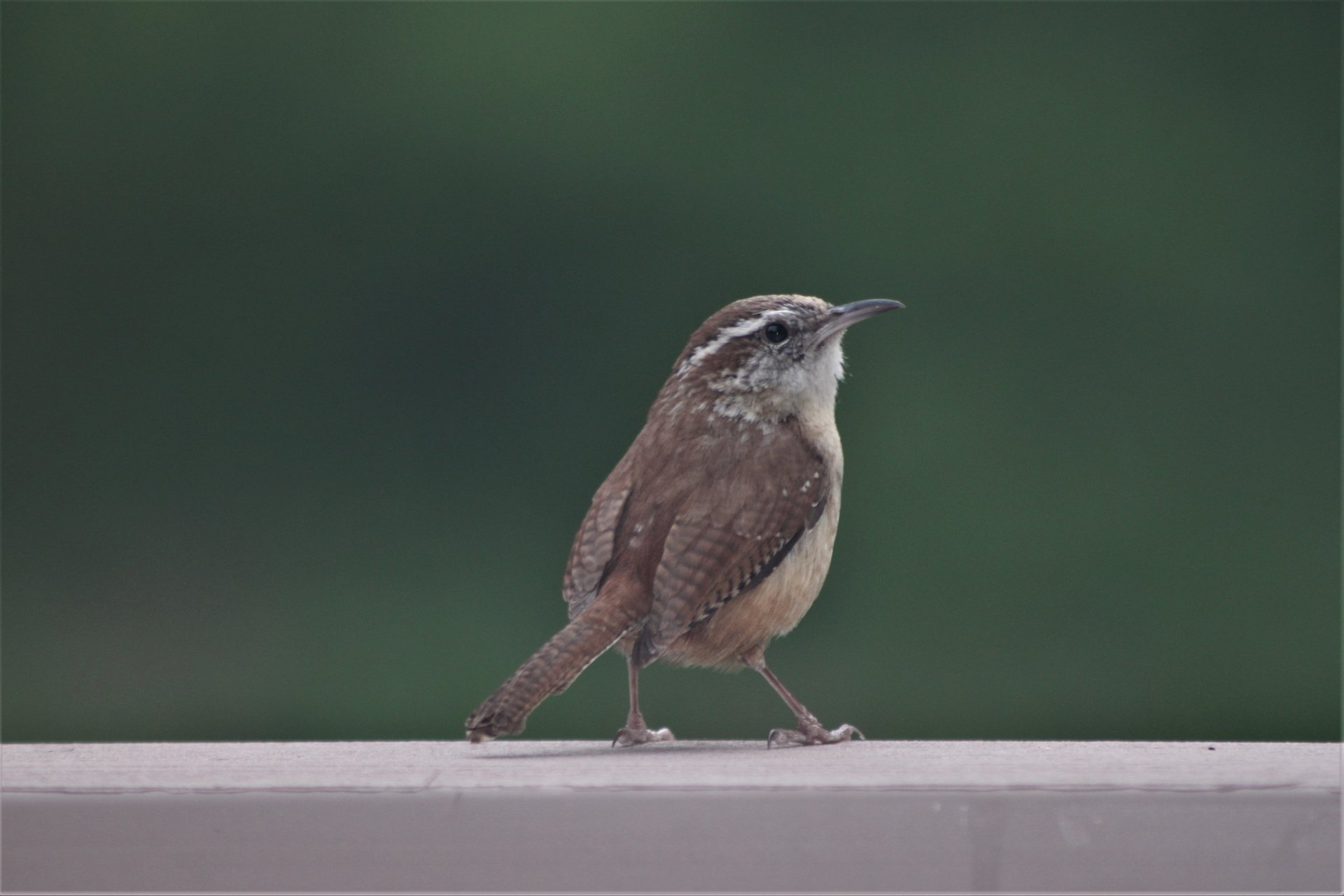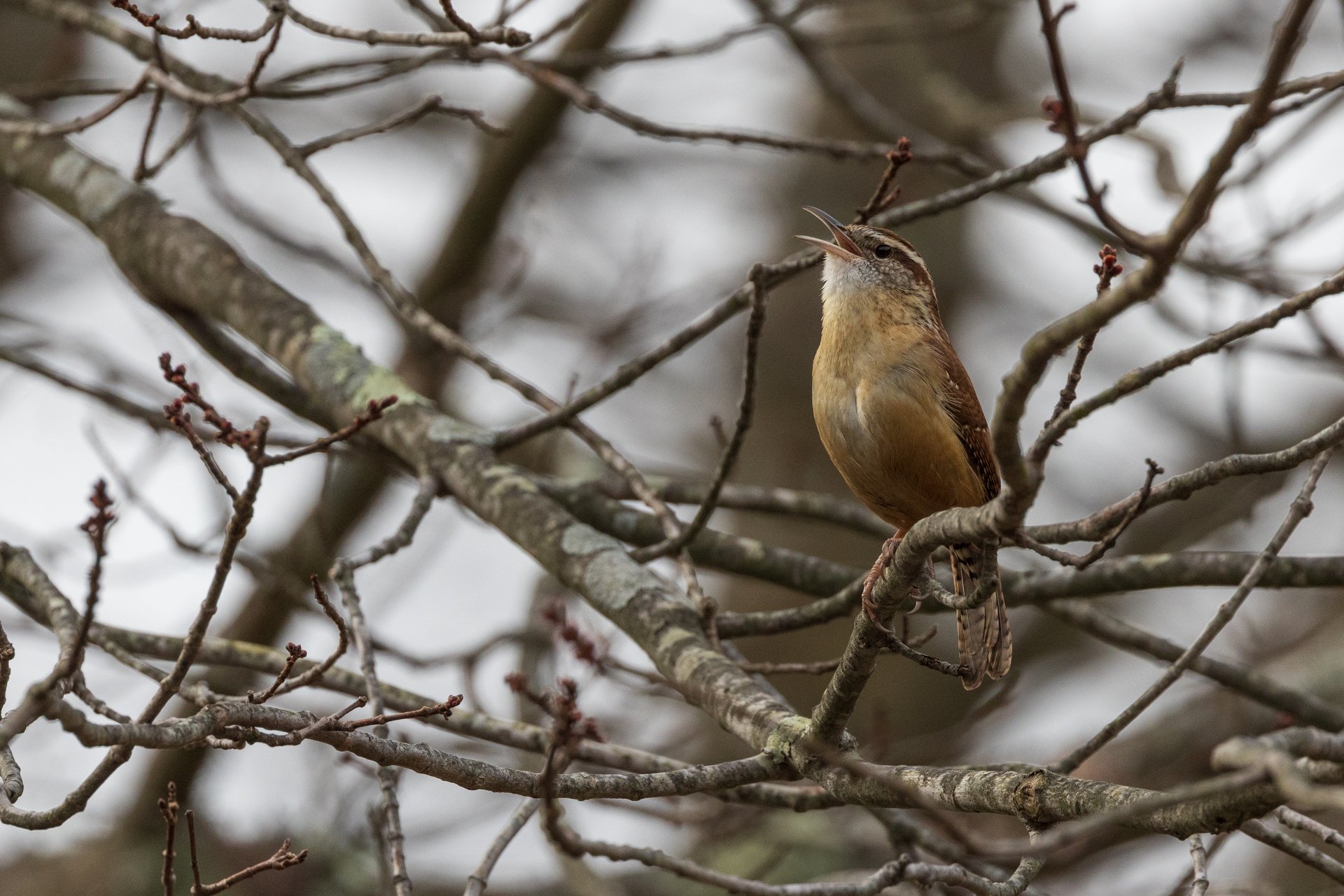Birds in Massachusetts
Carolina Wrens
Although once limited to the southeastern United States, Carolina Wrens have spread north all the way to New England, where they can be found in all seasons. With its tail cocked at a jaunty angle and its bold white eyebrow-stripe lending a rakish air, a Carolina Wren is a vocal and active visitor to any suburban neighborhood.
How to Identify Carolina Wrens
Like most wrens, Carolina Wrens are small (5.5”) brown birds with fairly short tails that they often hold cocked upward. Their bills are well-suited for probing for insects, being long, pointed, and slightly decurved.
Their plumage is more reddish than that of the other common suburban wren (the House Wren), and their underparts are a warm buff rather than gray or white. Most conspicuously, Carolina Wrens have a bright white eyebrow-stripe (known as a supercilium), while house wrens have no eyebrow-stripe at all.
Carolina Wren Behavior
It’s true that the wings of Carolina Wrens are ill-suited for soaring like an eagle. However, they are well-suited for flitting from branch to branch in the tangled undergrowth where the species prefers to forage.
Carolina Wrens have historically been found mostly in the moist bottomland forests of the southern US, but they have proven to be remarkably adaptable.
They've have taken full advantage of milder winters and have increased substantially as both breeding and wintering birds in Massachusetts over the past few decades. Even high mortality during cold, snowy winters does not seem to have lasting negative impacts on the more northern segments of the population.
Today, the emphatic song of the Carolina Wren is frequently heard in both wilderness thickets and suburban developments throughout Massachusetts, but that has not always been the case.
Carolina Wren Song
How Mass Audubon is Supporting Birds in Massachusetts
Mass Audubon works at our wildlife sanctuaries and beyond to ensure that the nature of Massachusetts continues to thrive. By scientifically monitoring Massachusetts birdlife, Mass Audubon informs important conservation decisions and launches targeted initiatives to help at-risk species. In addition, fostering healthy habitats, supporting native species, and educating people about the importance of nature conservation is critical to our success. Learn more about our work
How You Can Support Birds in Massachusetts
Mass Audubon supports birds like the Carolina Wren every day, but we couldn’t do it without the support of our 160,000+ members.
Help support Carolina Wrens, and birds like them, by becoming a member today.
Upcoming Bird Programs
Friday Morning Birdwatching - Cape Ann
-
Cape Ann, Rockport
-
Friday, March 6
8:30-11:30am
Adults
First Fridays Community Gathering
-
North River Wildlife Sanctuary, Marshfield
-
Friday, March 6
9:00-10:30am
Adults
Winter Owl Prowl
-
Museum of American Bird Art Education Center, Canton
-
Friday, March 6
5:00-6:30pm
Families - children 5 - 17
Stay Connected
Don't miss a beat on all the ways you can get outdoors, celebrate nature, and get involved.






